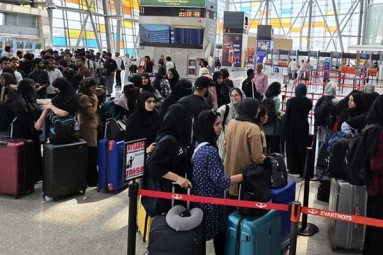
(Image source from: })
Surrogacy is a ray of hope for infertile couples, when pregnancy is not possible for reasons like that of either medical or risks to mother’s health or few other reasons. India is called as the "surrogacy hub" of the world as many local women were being hired to carry embryos of infertile couples, even from overseas, till the birth.
But now, the Indian government is planning to ban surrogate services for foreigners wishing to have babies, which is a blow to the thriving industry. Its plan is to limit surrogate services to Indian couples. This comes in the wake of concerns over the unregulated business. Last month, a petition was filed in the Supreme Court for which it ordered the Government to spell out plans regulating the industry.
An affidavit by the government to the Supreme Court said, "The government does not support commercial surrogacy and also the scope of surrogacy is limited to Indian married infertile couples only and not to the foreigners."
According to existing rules, foreign couples seeking surrogacy arrangement in India must be a "man and woman [who] are duly married and the marriage should be sustained at least two years".
As per the Government, it takes some time for the new law to come into action.
Solicitor General Ranjit Kumar presented the affidavit to the court that said, "[It is] in the process of bringing a comprehensive legal framework for not only protecting the rights of surrogate mother but also for prohibiting and penalizing commercial surrogacy."
India ‘hub of surrogacy services’
In India, the commercial surrogacy is estimated to be over $1bn (£65m) per year. Critics argue that the main factor that made the country hub of surrogacy services is poverty. India has one third of the poorest people in the world and this is why women decide to turn surrogate.
Other reasons encouraging surrogacy in India is estimated to be good medical technology, a lack of regulation, and low costs.
-Sumana











